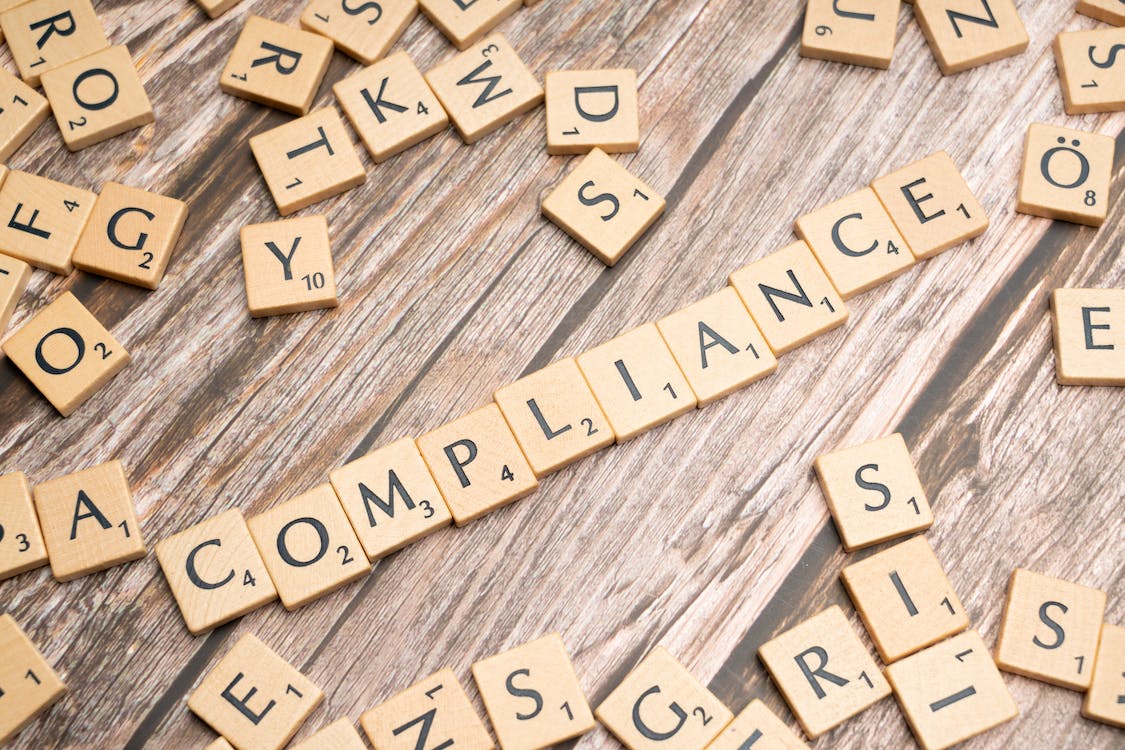What is Assembly Bill 2389?
Assembly Bill 2389 was brought forward in California by Cristina Garcia, the bill would require any adult performer (cam models and clip producers included) to be licensed and meet a list of criteria in order to work in the adult industry. This bill is geared towards “preventing minors from entering the industry” which sounds familiar to the backing for SESTA/FOSTA which wreaked havoc on the adult industry and sister industries upon it’s passing. The steps that the bill requires are also being promoted as a “way to prevent human trafficking in the industry.”
The Requirements of AB2389:
- Must be 21 years of age or older
- Must obtain a special license to work which must be kept on your person at all times
- All adult companies must hold a copy of the special license for a minimum of 3 years
- All performers must pass a “training program” to receive their license
- All performers must submit a criminal background check including fingerprinting in order to obtain their license
- All performers must pay the mandatory fee to receive their license, the price of which is currently unknown
Who does AB2389 apply to?
Assembly Bill 2389 applies to ALL California adult industry performers, including but not limited to: cam models, clip creators, porn actresses, porn actors, dancers, and anything described as “adult performance.” It is currently unclear if this would also apply to non-visual forms of adult entertainment such as phone sex providers.
Why is AB2389 a bad thing?
This bill would eliminate the convenience of working from home for many adult industry workers in the state of California. A large reason people enter this career on the indie side is to utilize the convenience of being able to start quickly and work any hours that they’d like while remaining unobstructed by a “boss.” Under the stipulations of the bill, it is possible for enforcers to check up on paperwork at any given time with no notice, which would create the possibility of at home interruptions. These interruptions could jeopardize the safety and privacy of performers, since not all performers have notified their family or friends about their current career choice. Another concerning point of this bill is that it only speaks to performers that are 21 years of age or older, while the minimum age to enter the industry is currently 18. Without the confirmation of legal language within the bill confirming that adults 18-20 years of age are not impacted by the bill, it could be assumed that California will no longer allow performers that are 18-20 years of age to perform within the adult industry. This bill would also be enforced in every city of California, and the enforcers (most likely law enforcement) would be required to be paid by tax payers. This could further the stigma that adult work is bad and should be halted completely if tax payers believe that their tax money is going towards enforcing a law to make sure that the adult industry isn’t trafficking children or unwilling individuals.
Full Language of CA AB2389:
AB 2389, as introduced, Cristina Garcia. Adult performers: employment rights.
Existing law requires the Division of Labor Standards Enforcement to establish a biennial in-person sexual violence and harassment training for property service employees and employers, as specified. Existing law requires the division to convene an advisory committee, composed of specified representatives, to recommend requirements for the training program. Existing law provides for enforcement of these provisions by the division.
Under existing law, local jurisdictions have the authority to license and regulate businesses, including adult entertainment businesses.
This bill would prohibit adult entertainers or performers from working at an adult entertainment business or working in an adult entertainment video unless they have a valid business license. The bill would, on and after July 1, 2022, require these entertainers and performers to complete a specified biennial training program regarding safety and working rights for adult entertainer workers. The bill would, by January 1, 2022, require the Department of Industrial Relations to create the training program and to convene an advisory group, composed of specified representatives of the adult performance industry, to provide recommendations for the creation and dissemination of the training. The bill would specify certain requirements for the training curriculum and would require the department to issue a certificate of training completion to the entertainer or performer upon completion of the training. The bill would authorize the division and local business license issuing authorities to enforce the training and recordkeeping requirements.
The bill would include findings that changes proposed by this bill address a matter of statewide concern rather than a municipal affair and, therefore, apply to all cities, including charter cities.
Because this bill would create additional licensing and enforcement requirements for local authorities, it would impose a state-mandated local program.
The California Constitution requires the state to reimburse local agencies and school districts for certain costs mandated by the state. Statutory provisions establish procedures for making that reimbursement.
This bill would provide that, if the Commission on State Mandates determines that the bill contains costs mandated by the state, reimbursement for those costs shall be made pursuant to the statutory provisions noted above.
THE PEOPLE OF THE STATE OF CALIFORNIA DO ENACT AS FOLLOWS:
SECTION 1. The Legislature finds and declares all of the following:
(a) There are hundreds of thousands of adult entertainers currently working in the United States.
(b) All adult entertainment workers are now classified as employees in the State of California as determined by Assembly Bill 5 (Chapter 296 of the Statutes of 2019), with other states now following closely behind.
(c) Safety, general welfare, and working conditions in the adult entertainment industry are a major high risk and concern.
(d) Workers in the adult entertainment industry deserve working rights as much as workers in any other industry, helping to protect them as well as their families.
(e) Education on safety and working rights for adult entertainment workers is necessary because, in the absence of such regulation, significant criminal activity has historically and regularly occurred, and depression and suicide rates have risen.
(f) It is necessary to prevent the exploitation of minors in the adult entertainment industry, to ensure that those workers have not assumed a false name that would make regulation of the worker difficult or impossible and to ensure that those workers are not involved in criminal activity. It is also necessary in order to ensure that the worker is not a victim of human trafficking and may legally work in the United States.
(g) The avoidance of tax payments has historically occurred in the adult entertainment industry with the absence of regulations and permits.
SEC. 2. Chapter 6 (commencing with Section 1710) is added to Part 6 of Division 2 of the Labor Code, to read:
CHAPTER 6. Adult Performers Employment Rights
1710. A person shall not work as an entertainer at an adult entertainment business or as a performer in any adult entertainment video, including, but not limited to, internet web-camming sites, without having first obtained a valid business license or permit from the local business license issuing authority and the entertainer or performer obtaining a certificate of training completion issued by the Division of Labor Standards Enforcement pursuant to subdivision (h) of Section 1713.
1711. An employer shall keep a copy of the certificate of training completion for each adult entertainer or performer employed for three years following the termination of employment. These copies shall be available to the employee or to the Division of Labor Standards Enforcement upon request.
1712. Each adult entertainer or performer shall keep a copy of the certificate of training completion issued and shall present it to the local business license issuing authority or the Division of Labor Standards Enforcement upon demand.
1713. (a) (1) The Department of Industrial Relations shall, by January 1, 2022, develop, or contract for the development of, training for adult entertainers and performers.
(2) (A) The department shall convene an advisory group, consisting of 10 members with the following representatives appointed by the Governor to assist with recommendations for creating and disseminating the training curriculum:
(i) Two members with adult film experience.
(ii) Three members with dancing experience.
(iii) Two medical doctors.
(iv) One licensed therapist.
(v) One licensed money manager.
(B) Each member of the advisory committee shall receive a per diem of two hundred dollars ($200) for each day actually spent in the discharge of official duties, and shall be reimbursed for travel and other expenses necessarily incurred in the performance of official duties. The payments in each instance shall be made only from funds appropriated in the state budget to the Labor and Workforce Development Agency and shall be subject to the availability of money.
(b) The training shall be required for the issuance or renewal of the adult entertainer’s or performer’s license or permit.
(c) The initial training shall be a minimum of two hours and shall be required for all adult performers 21 years of age and older. Initial training for adult entertainers and performers shall be a minimum of two hours and 45 minutes. Subsequent training shall be completed every three years and shall be a minimum of 45 minutes.
(d) If the training is conducted on an internet website, the website shall contain an interactive feature in order to complete the training.
(e) The training curriculum shall include, but is not limited to, all of the following information:
(1) The rights and responsibilities of adult entertainers and performers as employees.
(2) Reporting workplace injuries, including physical and sexual abuse and sexual harassment.
(3) The risk of human trafficking and how to report suspected human trafficking.
(4) Resources for assistance, including any applicable hotline telephone numbers.
(f) The requirements for this training shall apply to all licenses or renewals on or after July 1, 2022.
(g) The fee for the training shall be paid by the adult entertainer or performer and shall not exceed the reasonable cost of providing the training.
(h) The department shall issue a training completion certificate to the adult entertainer or performer upon completion of the training. If the training was conducted on an internet website, the website shall provide a means for the adult entertainer or performer to print out a training completion certificate.
(i) Each adult entertainer or performer shall also obtain a Live Scan fingerprinting as part of completing the initial training.
1714. The division and local business license issuing authorities shall have the power to enforce the requirement that adult entertainers and performers and employers, within their jurisdiction, comply with the requirements of this chapter.
SEC. 3. The Legislature finds and declares that the prevention of exploitation of minors in the adult entertainment industry, as well as for the other reasons stated in Section 1 of this measure, are a matter of statewide concern and is not a municipal affair as that term is used in Section 5 of Article XI of the California Constitution. Therefore, Section 2 of this act adding Chapter 6 (commencing with Section 1710) to Part 6 of Division 2 of the Labor Code applies to all cities, including charter cities.
SEC. 4. If the Commission on State Mandates determines that this act contains costs mandated by the state, reimbursement to local agencies and school districts for those costs shall be made pursuant to Part 7 (commencing with Section 17500) of Division 4 of Title 2 of the Government Code.




No responses yet